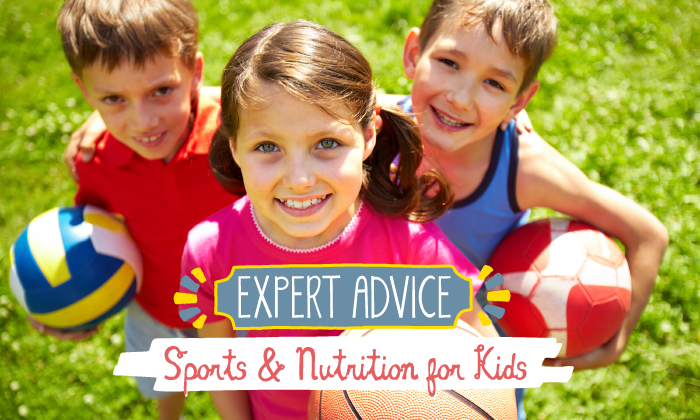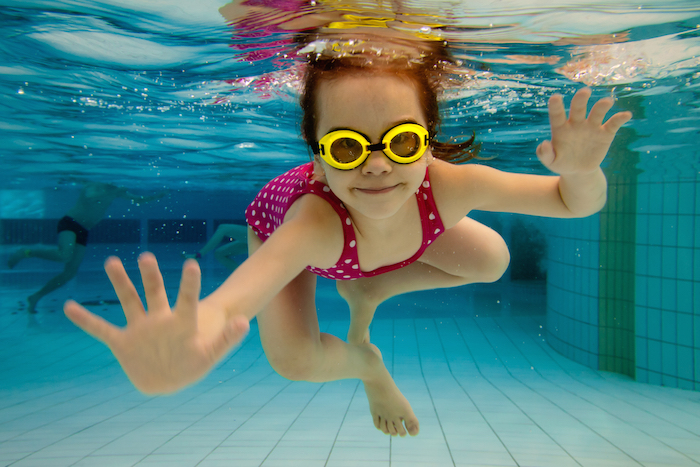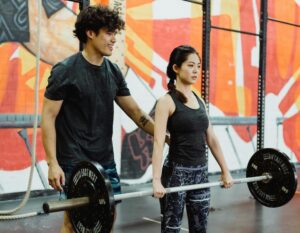
 Post Category - ParentingParenting - Post Category - Toddler & PreschoolerToddler & Preschooler - Post Category - Older KidsOlder Kids
Post Category - ParentingParenting - Post Category - Toddler & PreschoolerToddler & Preschooler - Post Category - Older KidsOlder Kids Post Category - WellnessWellness - Post Category - FitnessFitness - Post Category - NutritionNutrition
Post Category - WellnessWellness - Post Category - FitnessFitness - Post Category - NutritionNutritionA family doctor explains why it’s essential for kids to play sports, and what you can do to support and encourage a healthy lifestyle, from nutrition to hydration
We all know physical fitness is a cornerstone to a healthy lifestyle, but the real key is starting early, mama! Dr. Charu Narayanan of Complete Healthcare International tells us exactly why physical activity is so essential for kids, and shares tips for keeping them nutritionally supported and healthy. With a specialist background in paediatrics and nutrition, she really knows her stuff!
Children doing sport is a step towards maintaining optimal physical and mental health. Obesity is rising in the developed world, and with it come the risks of chronic disease such as diabetes and heart disease. Getting our children actively involved in sport at an early age can lay the foundation for lifelong healthy habits.

There are immense benefits of activity for mental health and well-being. For 5 -12-year-old-children, at least 60 minutes a day of exercise/ sport is recommended. Less active children are more likely to be overweight. Some of them may feel stigmatized; their confidence may be lower and they may be more likely to have disordered sleep. Furthermore, they are likely to be involved in less social activity. A lot of physical activity brings with it the need to take extra care of some aspects especially in the hot weather here in Singapore.
Offer nutritious meals and snacks
The nutrition needs of active children can be met by a varied diet that offers enough calories not just for growth, but also for the extra demands of sports and physical activity. Carbohydrates from vegetable and cereals, protein from animal sources and beans/ pulses, healthy fats from nuts and oily fish make up macronutrients and provide building blocks for energy production and repair.
Micronutrients constituting vitamins and minerals are also required for optimal health. Important vitamins include Vitamin A, B, C, D, E, K and folic acid. Zinc is worth a mention as an important mineral. These act as promoters of various enzyme systems in our body, acting as antioxidants, immune boosters and repairing damaged cells. They also help maintain bone and muscle strength and keep the heart and nerve function optimal. It follows that deficiency of these in sporty children presents earlier due to a higher demand.
Don’t forget the micronutrients
Animal sources such as dairy, eggs, meat and fish, wholegrain cereals, fruits and vegetables as well as sunlight (Vitamin D) provide micronutrients.

What if my child turns vegetarian or vegan?
Vegan or vegetarian child may need extra support with iron supplementation, along with a Vitamin C source to aid absorption. They may struggle to maintain adequate Vitamin B12 levels as well and in this situation, supplements can help. Adequate calcium can be obtained from dairy, vegetables, nuts and seeds.
Fussy children
These children may lose out on nutrition – often going in for carbohydrate-rich and micronutrient-poor food choices. As the demand for fuel is higher, sporty children are likely to experience fatigue more easily and recover less quickly from intense exercise. They may fall prey to recurrent infections.
Sugars
Occasional sweets are not a problem, but children today have easy access to sugar rich snacks, processed food and sugary drinks – all sorely lacking in nutrients. This may not occur at home, but from sources like vending machines close to sporting venues, or when they go on sport related trips out of town. Children should be educated about these foods only providing ‘empty calories’ with adverse effects on their performance at sport if routinely consumed as substitutes for healthy snacks.

Establishing healthy eating patterns
It cannot be stressed enough that as parental role models for our children, we should be choosing and shopping for food carefully as well as demonstrating a regular active lifestyle to them.
Timing of meals
Skipping breakfast is not a good idea with intense activity planned for the day. A meal should ideally be eaten 2-3 hours before intense sports, with smaller carbohydrate and protein-containing snacks during the activity. Otherwise the child may suffer with weakness or lightheadedness during exercise. The ideal time for a pre-sport snack is 30 – 60 minutes before commencing activity. Don’t forget to offer a nutrient-dense meal with adequate protein at the end to replenish glycogen and muscle protein used up during exercise.
Some ideas for healthy snacks include:
Fruit
Vegetable sticks with hummus
Natural yoghurt with chopped fruit and a dash of honey
Reduced salt/sugar baked beans on whole meal toast
Guacamole, whole meal pitta
Rye crispbread with low fat cheese and grapes
Unsalted nuts or seeds
Low fat milk
Fruit smoothie (made with low fat milk/ soy/ almond milk and banana / berries)
Oatcakes with peanut butter and other nut butters
What about supplements?
Be safe when it comes to extra protein shakes or supplements as these may have ill effects. A healthy varied diet with adequate protein should suffice. There are concerns around excessive protein and its effects on bone density and effects on kidney function in the long term. The best source of vitamins and minerals remains food.

Hydration
Hydration is particularly important as water is a medium for all enzymatic processes to occur in the body and required for energy production and cell repair. This is important with the hot weather here. Children have a larger water proportion in their body compared to adults, and so are at a greater risk of dehydration. Pursuing outdoor sport in hot weather carries a higher risk of dehydration and symptoms may include heat stroke, headaches, nausea and fatigue as muscle strength and aerobic capacity are affected.
Suggested drinks for hydration
Drinking water is often not a habit and inculcating this from a young age is a good idea. Water, milk, no added sugar fruit juice and smoothies are acceptable drinks. Some sports drinks may have a high sugar content or contain caffeine, which is undesirable for children. Homemade isotonic drinks prepared with water, a pinch of salt and some honey can be less expensive and work just as well. Milk can also be a complete post-workout drink rich in calcium, protein and electrolytes ( if there is no dairy intolerance).
It is important to recognize that children have different needs than adults due to rapid brain growth and hormonal changes, especially at puberty. Lack of care with regard to nutrition will therefore have an impact on general health, growth and athletic performance.
![]()
Thanks, Dr. Narayanan! To ensure your kiddo is healthy as can be, and for more tips on nutrition and helping your children achieve a healthy, active lifestyle, be sure to visit the family doctors at Complete Healthcare International (CHI)!
Complete Healthcare International, 45 Rochester Park, Singapore 139249, Tel: (+65) 6776 2288 or email [email protected], www.chi-health.com.sg






 View All
View All





 View All
View All











 View All
View All






